- Home
- Fay Weldon
The New Countess Page 19
The New Countess Read online
Page 19
‘Enough of that, Lily,’ said Mrs Neville, and Lily actually nudged Elsie and muttered ‘Sorry’. With so many extra staff employed to do the work of the household there was time and energy for such niceties.
‘If you ask me,’ said Digby, ‘and I’m new to the family, but if this Mr Anthony Robin’s the same Mr Robin as I know, then everyone’s barking up the wrong tree. He’s seeing a Mr Brown from Lady Rosina’s publisher.’
‘What’s that got to do with the price of fish?’ asked Smithers.
‘Nothing you should know about, Smithers,’ said Mrs Neville, ‘and as for you, Digby, wash your mouth out with soap and water.’
‘I speak as I find,’ said Digby, darkly, and fell silent. So did they all, the soapy taste of childhood in their mouths.
Cook was the first to speak. She rang for Maria the agency under-parlourmaid to clear the plates. She turned to Belinda, whose plate was still sticky with cold syrup and suet crust, though she’d not been able to resist the jam, and said –
‘As for you, Belinda, if you think you can come running to me for a piece of cheese before tea you’ve got another think coming.’ Belinda tossed her head and Lily giggled.
‘Talking of cheese,’ said Mr Neville, speaking for them all: they wanted more from Digby, ‘perhaps we could do with a little of that nice Cheddar we were eating yesterday, Cook, before we all get on with our work, while thanking God for his many mercies. Not to mention you, Cook, for the good table you make of what He provides.’
Cook beamed. Oat and wheat biscuits were brought in, with a large slab of golden butter and a whole half-pound of cheese. Belinda ate, while choosing the oatcakes rather than the wheat in accordance with her mother’s instructions passed on from Mr Banting.
‘Why would Mr Robin lie about a thing like that?’ asked Lily.
‘Stands to reason,’ said Digby. ‘Nothing would suit Mr Robin better than being named in a divorce case as a co-respondent. Turns the finger of suspicion away. No one wants to languish in prison like Mr Wilde.’
‘That’s daft,’ said Reginald, ‘I’ll never forget waiting in Half Moon Street while he and Lord Arthur had their way with that Flora.’
‘Please!’ begged Mrs Neville.
‘Because a man’s one way inclined,’ said Digby with authority, ‘doesn’t mean he can’t be the other way too.’
There was another silence, while they took this in.
‘What d’you mean?’ said Elsie. ‘Lady Minnie was caught bang to rights. All very well for Lord Arthur and the lady journalist but not for Lady Minnie. One law for the men and another one for us.’
‘And why not?’ asked Mrs Neville. ‘A man can’t help what he does, a woman can.’
‘I’m not so sure,’ said Lily.
‘That’s enough of that,’ said Mr Neville. Nanny came in to find the cabbage cake she would slice for the children’s tea. Minnie had insisted the children ate fresh vegetables though it always made them cry. Nanny would put on cabbage early in the morning, boil it for three hours, changing the water three times to get rid of impurities, squeezing the moisture out with the terrine press. By the time it was finished Nanny could cut it like a cake.
‘Why are you still doing that, Nanny?’ asked Cook. ‘Giving that stuff to the children? It’s only fit for horses. ’
Nanny thought about it and then dropped the slices and the whole cabbage cake into the pig-swill bucket.
‘You’re right,’ said Nanny. ‘There’s no need for it any more. Auntiescorbuticks, my foot!’
‘So you’ll back me up then, Nanny,’ said Reginald.
‘My lips are sealed,’ said Nanny. ‘But yesterday the nasty truth came out, and Lady Minnie was barred the door.’
‘What did I tell you,’ said Reginald. ‘A divorce is in the air.’
‘Poor wee mites,’ said Nanny. ‘But at least they’re out of that Jezebel’s care and back here where they’re safe. For nursery supper we’d like steamed cod and white sauce, Cook, with a sprinkling of nice dried parsley; Master Connor is partial to golden syrup pudding, if there’s any over.’
The Snatching in Church Lane
Sunday 3rd December 1905
The lane was held fast in Winter’s grip; the hedgerows were bleak, the path a horrid mixture of mud and ice. Nanny, the nursemaid Molly, and the two children were walking back from church to Dilberne Lane. Nanny held Edgar’s hand. He dawdled and limped and said his feet were hurting.
‘Stuff and nonsense,’ said Nanny. ‘The faster you walk the faster you’ll get there. I thought you were a brave boy.’
Progress was not fast. Molly was wheeling little Connor in his stroller, but he kept wanting to get out and walk and cried if he wasn’t allowed to. The young masters had done nothing but whimper and whine since their mother left. Nanny denied it and said they’d never been happier. You could understand it in Nanny, thought Molly, she was old and daft, but Lady Isobel was much the same. They both only saw what they wanted to see. She’d even offered to go into Clarks’ new shop in Brighton on her afternoon off and buy some nice soft sealskin button shoes for Mr Edgar’s poor little feet – Mrs Neville said she could have the money – but Nanny said it would be doing the child no favours, the foot must learn to fit the shoe, not the shoe the foot. Which Molly knew to be nonsense, because her grandmother had trained with Nanny Margaret and said exactly the opposite.
Irene Barnes, Molly to everyone, was fifteen; a local girl who thought she was a disappointment to her mother, being not apparently interested in furthering herself. To be a nanny was the height of Molly’s ambition; she liked children and she liked being told what to do. It was a relief; you could get on with your own thoughts. She hoped one day to be married, but as her mother kept telling her, that was the good fortune of only one girl in every three, and without more oomph she wouldn’t make it. Molly could see she did not have oomph. Her mother had; her father had. Both had started out in service; both had got out. A pretty girl had opportunities; a plain girl without oomph was wise to stay where she was and make the most of what God had given her, which was what she was doing. What God had given her was a big house up the road where you got paid for what you most liked doing, where the mistress kept a good table, where you got £24 a year to spend on your afternoons off – and the little sealskin button shoes at Clarks in Brighton were darling, even if the child who needed them was someone else’s, not your own. You were never likely to have any of your own anyway. She should have been allowed to buy the shoes. Master Edgar was a future Earl and deserved the best.
If she’d been pretty she would have dreamed of marrying an Earl and giving birth to a little Lord herself: as it was, she dreamed of Nanny dying or at least being retired for being so stupid and old, and herself, Molly, stepping into Nanny’s shoes. If kitchen maids stepped over cooks when they died and just got on with finishing the dinner, so nursery maids could step over nannies and take over. Molly thought of how she had shaken her head at Lady Minnie the day she’d run away and wondered if she’d done the right thing. If only she’d had more oomph she’d have tucked the little ones under her arms and run with her. She’d liked Lady Minnie more than anyone. Nanny said Lady Minnie had odd ideas but Molly thought Nanny’s were even odder. You thought people who were older than you automatically knew more than you but it wasn’t so.
Thus, half day-dreaming, half attending to little Connor, Molly walked home with Nanny after church. It was rare for both the Earl and Lord Arthur to put in an appearance together, as they had today. Lady Isobel sometimes missed, but Lady Minnie almost never. Now she had been gone for five weeks in a row. It was noticed and commented upon. Something was going on. There were rumours about the King’s visit, which was supposed to happen in December, but nobody knew the exact dates. The reason for the secrecy was assumed to be because Mrs Keppel was coming with the King and the Queen wasn’t meant to find out. For whatever reason, the locksmith was working overtime on new locks for doors, and the blacksmith on the bolts, and b
ars for basements. The Viscount was known to keep a pistol in the Gatehouse. What was going on?
After the service, Lady Isobel had talked with the Reverend Stacey about flowers for Mattins on the 17th December, so at least it could be safely assumed that the King would visit on the Sunday morning, and most of his staff would no doubt turn up for Evensong. The royal visit was bringing quite an income into the village. The trains were asked to stop more and more frequently at Dilberne Halt, to the despair of the Brighton and Portsmouth Railway Company.
Though the flowers for the church would be sent down by Frascati of Oxford Street, ladies from the Mothers’ Union would arrange them. The white carpets may have come from Harrods of London but were fitted by Dilberne workmen, and the six white Angora cats that matched the carpets had been bred in an East Sussex cattery. Molly marvelled when she’d overheard Lily telling Nanny about the cats. Lily had got it from Agnes that Mrs Keppel had white Angora cats, it seemed, and white carpets. Molly thought it was rather obvious to do the same: if it was her she’d have got black cats and gone for the contrast. Everyone agreed The Change had turned her Ladyship a little strange. Though Molly acknowledged she was sweet with the children and was a frequent visitor to the nursery. It was more tempting for her to turn up, of course, now that radiators had been installed. Nanny kept all the windows open, which seemed to Molly a wicked waste.
The rest of the party had taken the carriage home – the Countess was complaining of the cold. Nanny and Molly went on foot so the boys’ little lungs would get the benefit of the country air. The countryside was so peaceful and dank, not a soul to be seen. Damp foliage crowded in on them; there were still a few leaves on the trees and hedges. It looked as if it might snow: the clouds were low and heavy. If it did snow it wouldn’t lie; just be wet slush. They were about half way home, had just passed the Drovers’ Lane crossing at the top of the hill – after which you had to cling to the stroller to stop it speeding down, which was even worse than using all your strength to push it uphill – and had just rounded the bend where the path narrowed so she had to walk in front of Nanny and Edgar, when in front of them, out of nowhere, she saw that three women were walking determinedly towards them.
One she recognized, Lady Minnie, but looking rather odd and wild-eyed. Two she did not recognize: a tall and elegant woman in rather severe navy blue and a cloche hat, and a plump older woman wearing a pastel-blue outfit which was too tight. What happened was strange and very sudden. Lady Minnie walked past and plucked Connor out of the stroller, tucked him under her arm and walked briskly on. The tall one reached Nanny and simply released Edgar’s hand and picked him up and joined Lady Minnie. Both then began to run, turning into Drovers’ Lane and out of view. Nanny was left open-mouthed and staring. Then Molly herself was seized by the arm by the woman in pastel blue and hurried along.
‘Nanny! Help!’ she managed to cry out, but she wasn’t sure she wanted help. She felt a decided surge of oomph. Anything was better than walking through mud on a day when it couldn’t decide whether or not it was going to snow, with a little boy who couldn’t decide likewise whether he was going to walk or not. As soon as they were round the corner – she was struggling mildly but not too hard: if she was being kidnapped it was obviously not by white slavers, and it might even turn out to her advantage – there was a motor car waiting for them. It was one of the new Austin Phaetons, she was sure of it, and driven by a man called Eddie, who seemed to be one of the tall woman’s friends. She was called Grace. Perhaps she was the one they talked about sometimes in the servants’ hall.
Lady Minnie sat in the front with Master Edgar on her knee; he had been too startled to say a word but seemed happy enough because Lady Minnie was already taking off his shoes and was fitting them with a new pair of Clarks’ little sealskin boots just like the ones Molly had seen in Brighton. It was all going to be all right. Molly was squeezed in the back next to Grace and the plump woman in pale blue, who turned out to be Lady Minnie’s mother for all you couldn’t understand half what she said. They plonked little Connor on her knee and he seemed to feel much the same as she did, that anywhere was better than Church Lane on a damp Sunday morning in December. Anyway, he started kicking away at the seat in front of him and annoying the driver so she knew he was not much damaged.
‘We thought it was best to take you too, Molly. You’re a familiar face to the boys.’
‘Supposing I tell? Won’t you get in trouble?’
‘You’re a good girl, Molly, you won’t. And we’ll keep an eye on you so you can’t. It’s only till tomorrow. We’re in an hotel tonight and then we take the train to Liverpool and on to New York. The children are going home.’
‘What about my things? My hairbrush? My nightie?’
‘Grace has brought you some really nice things, Molly. And here’s something for your pains.’
Grace leaned over and handed her two bank notes. They were large, white and silky. I promise to pay the bearer the sum of five pounds was written across it in a fine elegant script. It was printed on one side of the paper only. It was so beautiful and two of them were twice as beautiful as one. Everything the rich take in their hands is beautiful, thought Molly. Nothing scratched, nothing smelt, nothing hurt or made you shudder. She’d never seen anything with more than ten shillings written on a note before, though she knew such notes existed. Connor tried to snatch them so she stuffed them in her pocket. They were bribing her. Well, that was all right. She had everything to gain, and nothing to lose. And Master Edgar was sitting on his mother’s knee, his hands locked round her neck, twisting round to stare at her face. He was so solemn and serious. Molly had done the right thing.
The Phaeton roared on to London as if nothing could stop it, Eddie driving intent and concentrated. It seemed that the woman in navy blue called Grace was a servant too. Molly looked behind, half expecting the police to be chasing them, but there was nothing: nothing on the road could keep up, let alone overtake. The roads were almost empty anyway. It would take Nanny ages to get home and call the alarm. You had to admire the ladies: ordinary criminals were stupid, but these three had everything so well organized. But Lady Isobel would be furious and Lord Arthur would not let his sons go easily. Edgar was the heir. The whole country would be in uproar.
The Phaeton they were in was a limousine; it could only be a prototype. Lord Arthur was trying to rush his own, Jehu, limousine into production. Molly had seen photographs of the new Phaeton down at his Lordship’s workshop where her mother and father worked. In the flesh – or rather in the strong metal frame and brass-lined bonnet that seemed to smile, and with its two strong headlights like watchful eyes – it was rather glorious. The Jehu was all right but didn’t have the Phaeton’s glamour. Lord Arthur would be the more furious: not just his children kidnapped but in a rival’s car, of all things an Austin Phaeton. The papers would love to get hold of the story. And Molly was the centre of the story. Whatever happened next, she would be famous. The two five-pound notes were only the start.
Doubt set in; shock at the suddenness of it all. Nothing to lose, she thought, but what about her job? If there were no children to look after why would the Dilbernes need her? She’d be out on her ear. Nanny might stay on because she’d been in the family so long, the horrid old cow, but she, Molly, had only just begun. And supposing she got blamed, for all she was kidnapped? Her father and mother might lose their jobs.
Molly tried to work it out. And the children, she wondered about them. Was it better for Edgar to be brought up as an Irish person in America or as a Lord in his own country with everyone bowing and scraping? Connor was no problem, he’d be all right wherever he was, but Edgar was different. He so seldom smiled; perhaps if you were born to a title you had to have the instincts that went with it or you couldn’t thrive? Now he’d fallen asleep on his mother’s knee. She was cradling his head in her arms to stop it banging against the dashboard when the car cornered. She was a good mother. Everyone said Lord Arthur was a good father bu
t to Molly’s eyes he seemed embarrassed by his own children.
The four of them were talking. She listened to find out what she could: in the circumstances it didn’t feel like eavesdropping, just doing her duty by her charges. The man called Eddie was a friend of Grace’s. He worked as a concierge at an hotel called Brown’s. The Phaeton had been ‘borrowed’ by Eddie from the hotel mews, where it had been stabled by a Mr Herbert Austin, a guest at Brown’s, but away in Birmingham for a couple of days. The worry was that Mr Austin would return early and find his vehicle gone. Grace had been booked in for the night at Brown’s as Lady Stephenson from Dorchester; Minnie and her mother were Mrs O’Corcoran and maid from Chicago; and the children and Molly were the Masters O’Corcoran and nanny from Brighton.
‘Meaning no harm, Mrs O’Brien,’ apologized Mr Eddie, ‘turning you into the servant, but we don’t want to attract attention. In my experience the best lies are the ones that are nearest to the truth.’
‘You’re a cheeky blighter,’ said Mrs O’Brien. ‘So I’m the maid and Grace is the lady? I’m the one who pays the bills, remember that, and paying well over the odds into the bargain. Keep that straight.’
‘And aren’t I risking my job and worse for the sake of Grace’s blue eyes?’ asked Eddie, hurt to the quick.
‘My eyes are brown,’ said Grace. ‘And don’t think I’ll be doing you any favours tonight, Mr Eddie, because I won’t be.’
‘Oh just let’s get on back to London,’ said Minnie. ‘Bicker, bicker, bicker, I’m so tired. Who cares who’s the maid and who’s the lady? Isn’t that so, Molly?’
‘Yes, your Ladyship,’ said Molly, ‘but the baby needs changing. And there aren’t any nappies.’
But Grace, who was obviously the one who thought of everything, had some baby things packed away in her hamper. Eddie drew the Phaeton to a gentle halt where the road to Hindhead met the Devil’s Punchbowl and it was safe to park. Molly saw to the nappy and cleaned the old one off as well as she could with a couple of dock leaves before folding it back into the spare bag. She had been tempted just to throw it in the bushes but refrained. She had never stayed in an hotel before but presumably there would be somewhere to wash things out. A supply of nappies was less easy to determine.

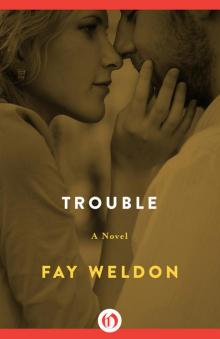 Trouble
Trouble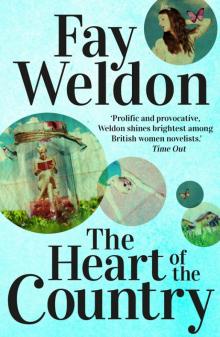 The Heart of the Country
The Heart of the Country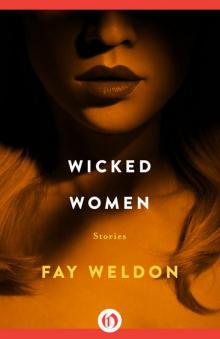 Wicked Women
Wicked Women Mischief
Mischief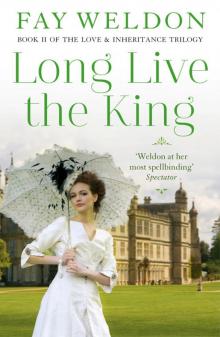 Long Live the King
Long Live the King Remember Me
Remember Me Worst Fears
Worst Fears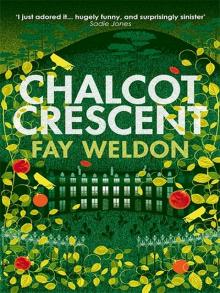 Chalcot Crescent
Chalcot Crescent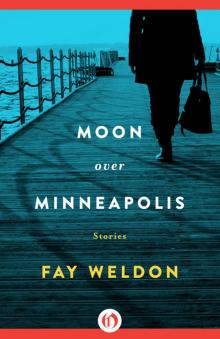 Moon Over Minneapolis
Moon Over Minneapolis The New Countess
The New Countess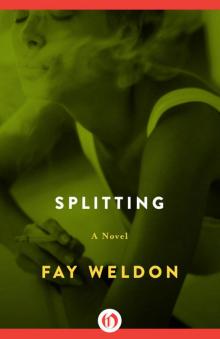 Splitting
Splitting After the Peace
After the Peace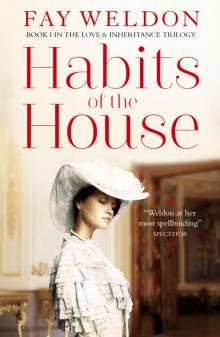 Habits of the House
Habits of the House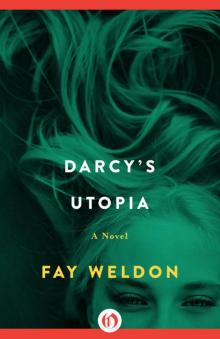 Darcy's Utopia
Darcy's Utopia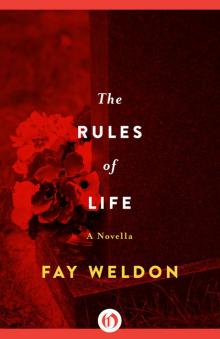 The Rules of Life
The Rules of Life Kehua!
Kehua! Before the War
Before the War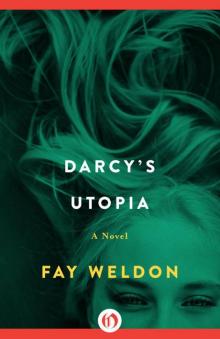 Darcy's Utopia: A Novel
Darcy's Utopia: A Novel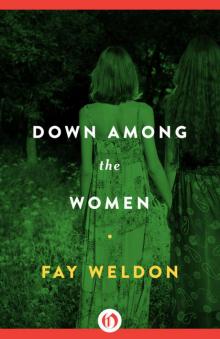 Down Among the Women
Down Among the Women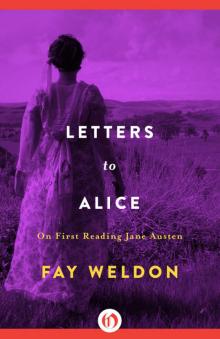 Letters to Alice
Letters to Alice 3 Great Historical Novels
3 Great Historical Novels Female Friends
Female Friends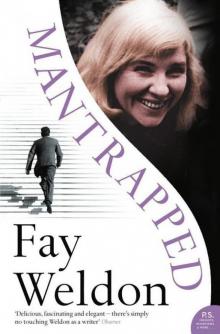 Mantrapped
Mantrapped The Bulgari Connection
The Bulgari Connection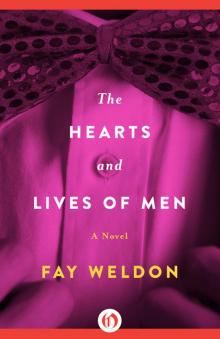 The Hearts and Lives of Men
The Hearts and Lives of Men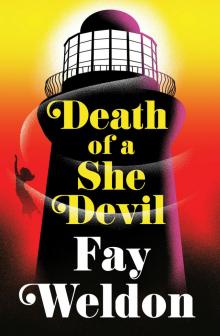 Death of a She Devil
Death of a She Devil